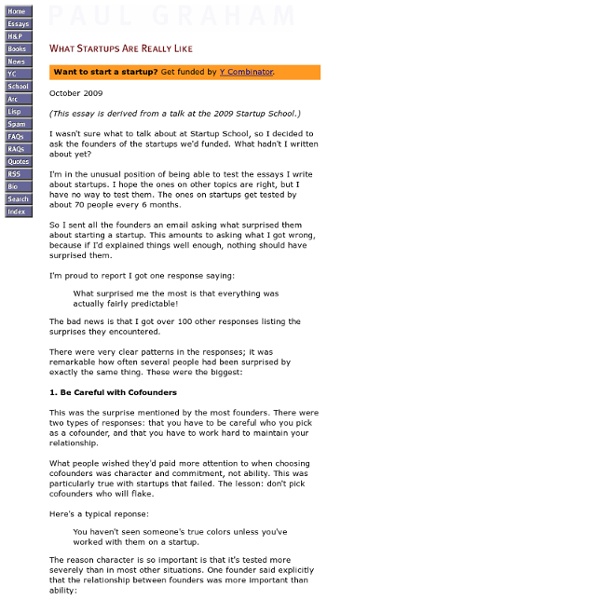What Startups Are Really Like

Is it Time for You to Earn or to Learn?
This is part of my Startup Advice series I often have career discussions with entrepreneurs – both young and more mature – whether they should join company “X” or not. I usually pull the old trick of answering a question with a question. Let’s face it. Yet I often hear people asking about these types of opportunities express their questions to me whether I think this company is going to be a big hit. And let’s say that it took 4 years to exit – that’s $31,250 / year. So let’s go CRAZY! Don’t get me wrong. I’m not trying to depress you. So when the Stanford MBA, the ex senior technology developer or the former Chief Revenue Officer of a company is calling me and asking my advice on their next gig you can see why I start with “are you ready to earn or to learn?” For most people it’s learn. When I was CEO of my first company (where I admittedly F’d up everything before I figured it all out) we initially calculated for people how much there options were going to be worth some day.
Just Closed On My First Deal! Reflections And Takeaways For Other Searchers - Searchfunder
After more than a year of grueling, frustrating, and lonely searching, I'm glad and relieve to announce that today I officially closed on my first deal! I've been active on this forum, picking other people's brains and asking for help, so I only find it fair to share some of my experiences and what I've learned with you all. I am a self funded, solo searcher, so everything below will be written from that perspective. First, for those of you curious about the deal specifics (because I always am): I bought a 100% residential lawn maintenance company based in NJ. 1. 2. --Geography: You don't have to do a nationwide search. --Sourcing: While I understand why people might want to do the cold email blast method or the "river guide" method of sourcing, I also think there are significant drawbacks to those. --Deal Size: I've noticed a lot of questions about optimal EV of the deals to pursue. --Source of Equity/Investors: I actually want to spend a little bit time on this topic. 3. 4. 5. 6. 7.
The ideal startup career path
For most people I know who join or start companies, the primary goal is not to get rich – it is to work on something they love, with people they respect, and to not be beholden to the vagaries of the market- in other words, to be independent. The reality is being independent often means having made money and/or being able to raise money from others. A while back, I posted about how I recommend thinking about non-founder option grants. In the comments, Aaron Cohen made the point that given today’s “good” exit sizes and standard equity grants, most non-founders will not gain independence even in the (non-extreme) good cases: Most startup employees need to realize they are on a journey and that in addition to making a few hundred thousand dollars on a good outcome they are learning how to become more senior at the next company. Real wealth creation will take founding, seniority, or staggeringly large exits. As Aaron said, you shouldn’t think of joining a startup as just joining a company.
You Weren't Meant to Have a Boss
March 2008, rev. June 2008 Technology tends to separate normal from natural. I began to suspect this after spending several years working with startup founders. Though they're statistically abnormal, startup founders seem to be working in a way that's more natural for humans. I was in Africa last year and saw a lot of animals in the wild that I'd only seen in zoos before. Trees What's so unnatural about working for a big company? Another thing you notice when you see animals in the wild is that each species thrives in groups of a certain size. Whatever the upper limit is, we are clearly not meant to work in groups of several hundred. Companies know groups that large wouldn't work, so they divide themselves into units small enough to work together. These smaller groups are always arranged in a tree structure. In practice a group of people are never able to act as if they were one person. Anyone who's worked for a large organization has felt this. Corn Syrup It's not your boss's fault. Notes
Related:
Related:



